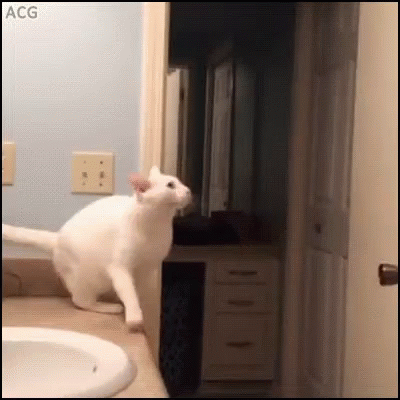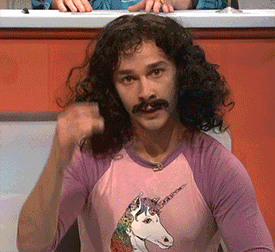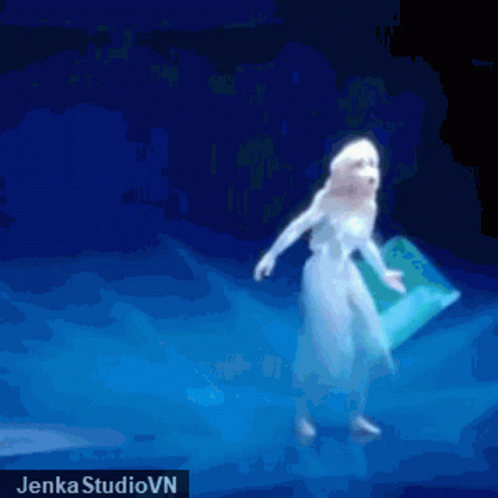FROZEN 2: Some Thoughts
I have, as it were, no chill about Frozen.
Two things combine to grant it this power over me. One, I have a younger sister whom I love more than my own life, and infuriatingly few media properties before 2013 had shown me sisters who love each other in as total and uncomplicated way as she and I do. Two, when I first watched Frozen I was at the absolute nadir of a terrible PhD, trying to decide whether or not to give up while uncertain what giving up would even look like. I had been miserable for two years, deeply depressed, and felt like a shadow of myself; I’d been doing my best to hide just how abject my misery was in order to cling to some notion of myself as a good and dutiful daughter.
The parallels are vast and obvious. Elsa is me and “Let it Go” is about my PhD, personally and specifically, and if you didn’t live in a flat in or near Cromwell Street in Glasgow between November 2013 and April 2014, count your blessings, because I belted that song with furious passionate earnestness at least once every goddamn day. I brooked no haters. My heart rang with that song. There is not a directly causal link here but I quit my PhD program within a few weeks of sobbing my way through my first viewing of that film, and felt buoyed and sustained by the catharsis it offered.
I spent a chunk of January 2014 home in Canada, and while there, sorted out my academic future and took my sister to see Frozen for her birthday. We gripped each other through the whole film, crying. It’s our film, for us, the first Disney film since Lilo & Stitch to feature loving sisters but ones who were the right difference in age, and, increasingly, temperament.
Naturally, when Frozen 2 was announced, we were trepidatious but excited. The depth of my association with Elsa increased to ludicrous proportions when the first trailers were released, opening with the most emotionally accurate visualisation of what it’s like to write a doctoral dissertation that I have literally ever seen.
(If you are contemplating doctoral work, please let me assure you that it is exactly like trying to climb a roiling ocean at night using only ice powers and a scrunchy.)
It looked so beautiful, and months in advance we made a date to cry again together on opening night. We went. We absolutely did! I cried so hard my eyes hurt, cried in that way that somehow sprays my glasses with salt constellations through which I can’t see. I am going to view it again with my husband, because I was dazzled by how gorgeous it looks, charmed by how funny it is, and because the songs are tremendous.
The story, though — let me describe it in a gif. After the gif, there’ll be spoilers.

(Spoilers start here!)
Within minutes of the opening title, I whispered to my sister, holy shit, it’s about settler-colonialism? By the second song — sung in response to a keenly beautiful female voice that only Elsa can hear — I whispered, holy shit, are they going to give Elsa a gal pal?
I was blown away by what I felt the film was promising, the narrative it was building, the path it seemed to be walking towards a case for indigenous reparations and reconciliation as well as queer affirmation.
It does none of those things.
Perhaps you are having a quiet chortle over the fact that I thought it would do those things. That’s fair! I didn’t go in expecting it to be anything other than Frozen 2: More Frozen. But as the film unspooled I found myself experiencing two different narrative tracks: one inside the songs, and one outside them.
I teach workshops to help people be less afraid of poetry. In them, I try to dig into the difference between poetry and prose, and encourage students to see them, not as opposites, but as related modalities with different emphases. The difference between poetry and prose, I tell them, is the difference between singing and speaking; there is a shift in the kind of attention demanded from reader or audience, an intensity of affect, often (but not necessarily) accompanied by a depth of intimacy and vulnerability.
The songs in Frozen 2 are more complex, passionate, thoughtful, and earnest than the songs in Frozen, which is why there isn’t a stand-out in the way of “Let It Go.” But the songs in Frozen 2 are also better than the story around them. Each song delves and soars, and all the songs — even the funny ones! — are doing something more complete and generative and wonderful than the scene from which they grow. Olaf’s existential crisis around ageing genuinely affected me! Elsa’s “Into the Unknown” is written like a reluctant resistance followed by thrilled capitulation to seduction by a female voice! (“I’m sorry, secret siren” — “you’ve been keeping me awake” — “or are you someone out there who’s a little bit like me?”) Likewise, Anna’s “Do the Next Right Thing” — the point in the film where I don’t even remember what was happening on screen because I was sobbing too hard to see — sounds like the loss of innocence, sounds like being flattened by the enormity of inherited atrocity and resolving to change an unjust world no matter how much it might hurt you personally to do so.
This grief has a gravity
It pulls me down
But a tiny voice whispers in my mind
"You are lost, hope is gone
But you must go on
And do the next right thing"
This is weirdly dislocating while actually viewing the film: how could “Into the Unknown” not be about queerness, but instead be about Elsa … Accepting her magic? Again? More? Where “more” means actually replacing her character with more powerful magic and… a costume change? How could “Do the Next Right Thing” not result in sweeping institutional transformation since the very existence of Arendelle relies on indigenous subjugation —

I acknowledge that I perhaps expected too much from this film. But it was so disheartening to see it seem to recognize, affirm, and then bracket off the need for visibility and change; to force ~magic~ to mean everything and nothing, to remove any stakes, to reward the acceptance of consequence by vanishing that consequence.
The two disappointments are not equivalent; where I’ll own that the queerness angle may have been me reading my tender hope into things, the indigenous plotline is a vague mess that needs to be load-bearing but doesn’t stand up to scrutiny. It plays up a narrative about atrocity being a tragic event in the distant past for which present-day settlers are not responsible. I have so many questions: why are the Northuldra imprisoned in mist for something the spirits presumably know the Arendellians did? Why is there no sense of where, exactly, the Northuldra live? Do they live in the forest? Did Arendelle take their lands from them? I am very confused by the way that dam works. Presumably Arendelle existed before the dam? How could breaking it threaten to flood it? These questions arise because the film refuses any kind of framing that would show the Northuldra to have actually suffered harm in need of reparation.
But hey, Elsa got her PhD. I wept an unfreezable ocean. I appreciate the animators continuing to illustrate my own very specific life by going so far as to hood her in that final transformation sequence.

I may have been misled by other aspects of the film but I 100% expect this gif to be what graduation actually feels like.
Member discussion